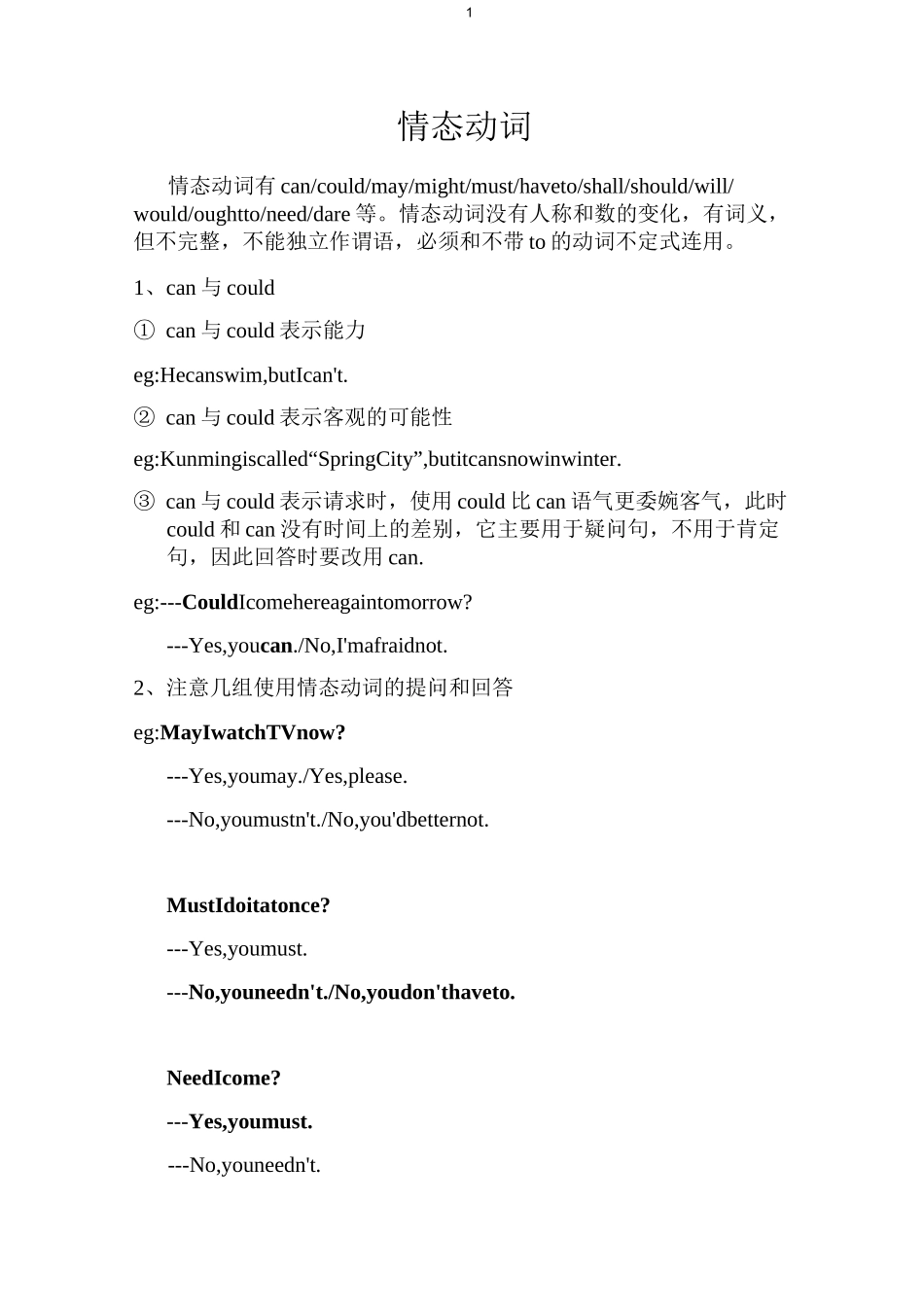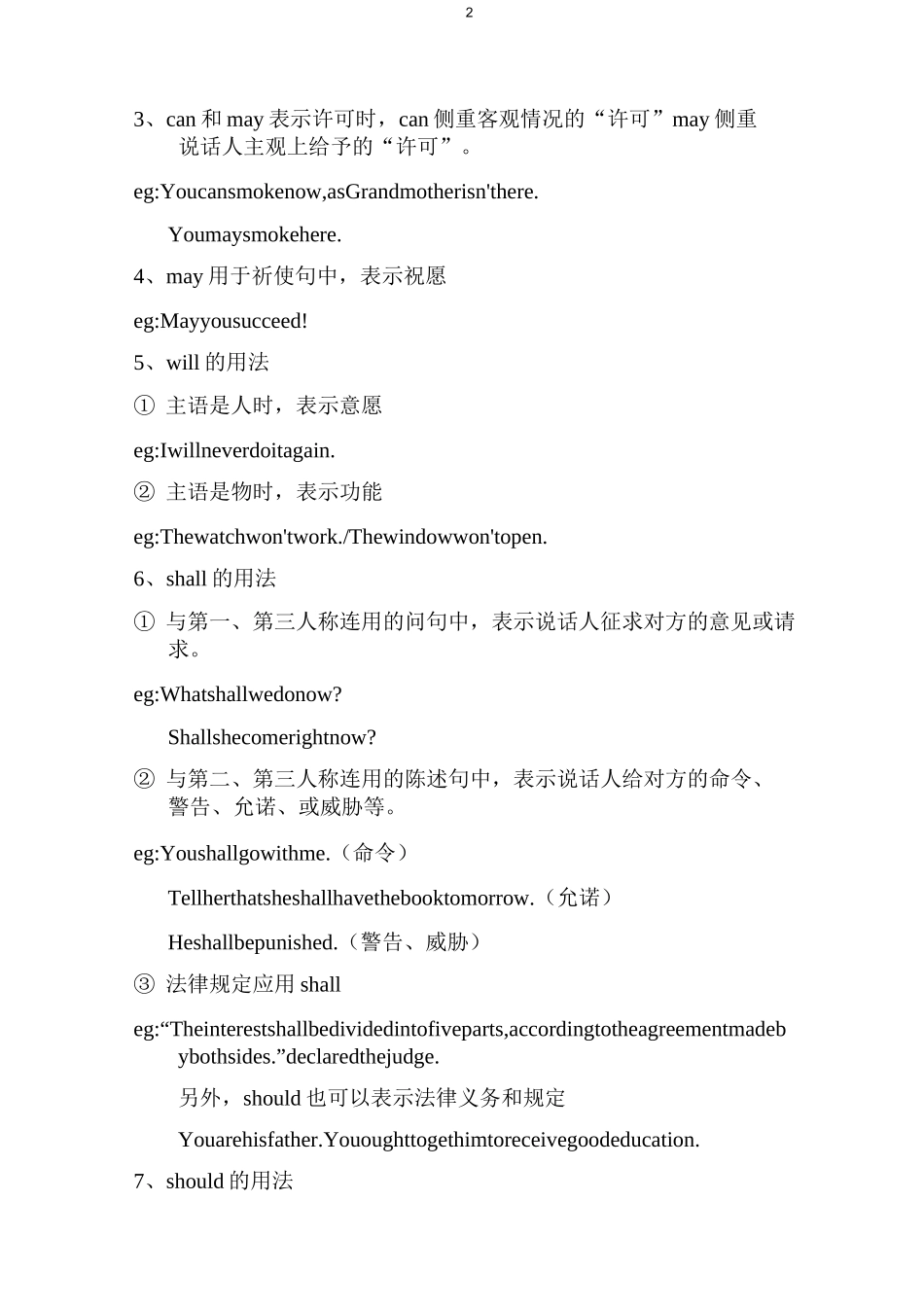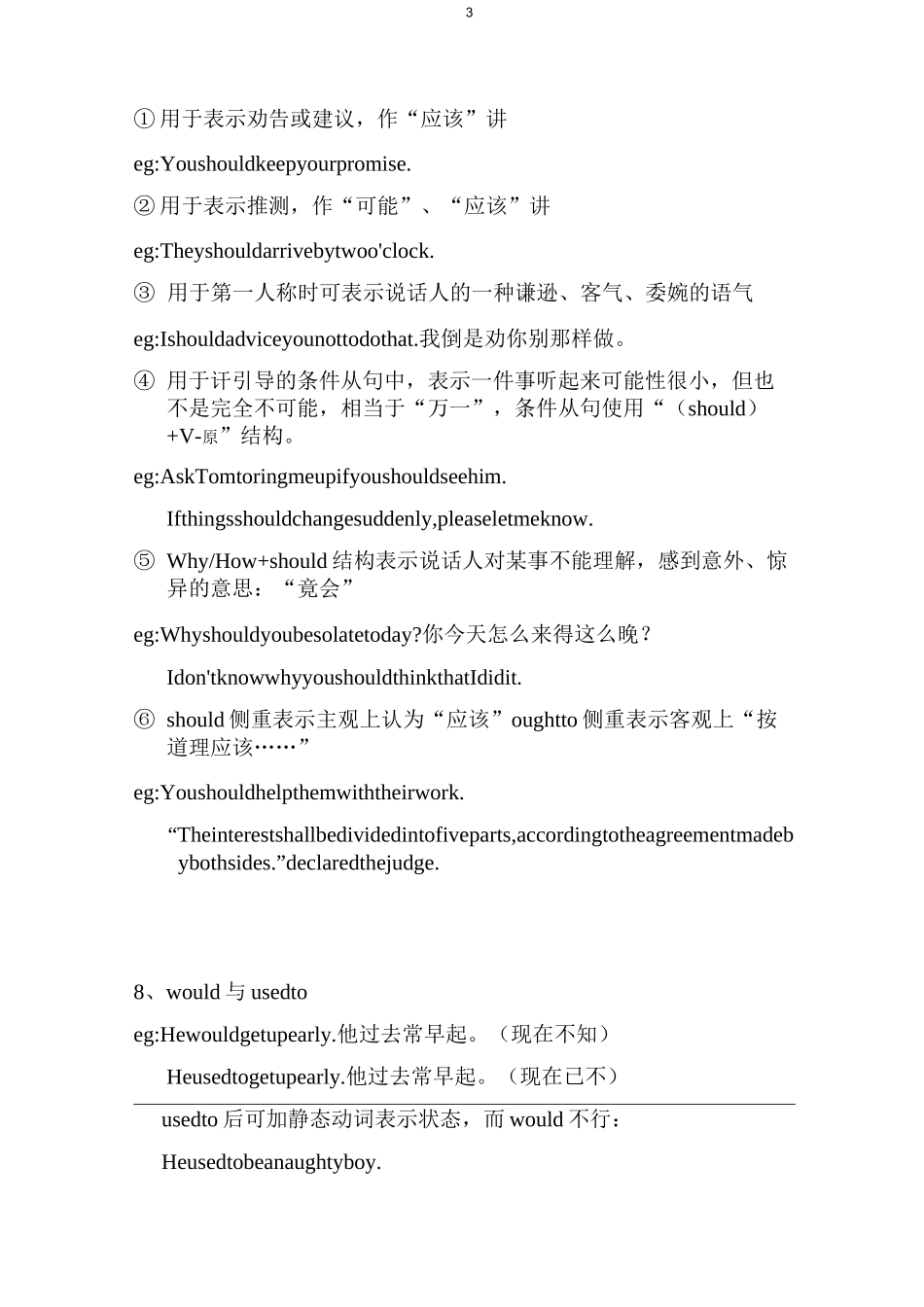1情态动词情态动词有 can/could/may/might/must/haveto/shall/should/will/would/oughtto/need/dare 等。情态动词没有人称和数的变化,有词义,但不完整,不能独立作谓语,必须和不带 to 的动词不定式连用。1、can 与 could① can 与 could 表示能力eg:Hecanswim,butIcan't.② can 与 could 表示客观的可能性eg:Kunmingiscalled“SpringCity”,butitcansnowinwinter.③ can 与 could 表示请求时,使用 could 比 can 语气更委婉客气,此时could 和 can 没有时间上的差别,它主要用于疑问句,不用于肯定句,因此回答时要改用 can.eg:---CouldIcomehereagaintomorrow?---Yes,youcan./No,I'mafraidnot.2、注意几组使用情态动词的提问和回答eg:MayIwatchTVnow?---Yes,youmay./Yes,please.---No,youmustn't./No,you'dbetternot.MustIdoitatonce?---Yes,youmust.---No,youneedn't./No,youdon'thaveto.NeedIcome?---Yes,youmust.---No,youneedn't.23、can 和 may 表示许可时,can 侧重客观情况的“许可”may 侧重说话人主观上给予的“许可”。eg:Youcansmokenow,asGrandmotherisn'there.Youmaysmokehere.4、may 用于祈使句中,表示祝愿eg:Mayyousucceed!5、will 的用法① 主语是人时,表示意愿eg:Iwillneverdoitagain.② 主语是物时,表示功能eg:Thewatchwon'twork./Thewindowwon'topen.6、shall 的用法① 与第一、第三人称连用的问句中,表示说话人征求对方的意见或请求。eg:Whatshallwedonow?Shallshecomerightnow?② 与第二、第三人称连用的陈述句中,表示说话人给对方的命令、警告、允诺、或威胁等。eg:Youshallgowithme.(命令)Tellherthatsheshallhavethebooktomorrow.(允诺)Heshallbepunished.(警告、威胁)③ 法律规定应用 shalleg:“Theinterestshallbedividedintofiveparts,accordingtotheagreementmadebybothsides.”declaredthejudge.另外,should 也可以表示法律义务和规定Youarehisfather.Yououghttogethimtoreceivegoodeducation.7、should 的用法3① 用于表示劝告或建议,作“应该”讲eg:Youshouldkeepyourpromise.② 用于表示推测,作“可能”、“应该”讲eg:Theyshouldarrivebytwoo'clock.③ 用于第一人称时可表示说话人的一种谦逊、客气、委婉的语气eg:Ishouldadviceyounottodothat.我倒是劝你别那样做。④ 用于讦引导的条件从句中,表示一件事听起来可能性很小,但也不是完全不可能...


